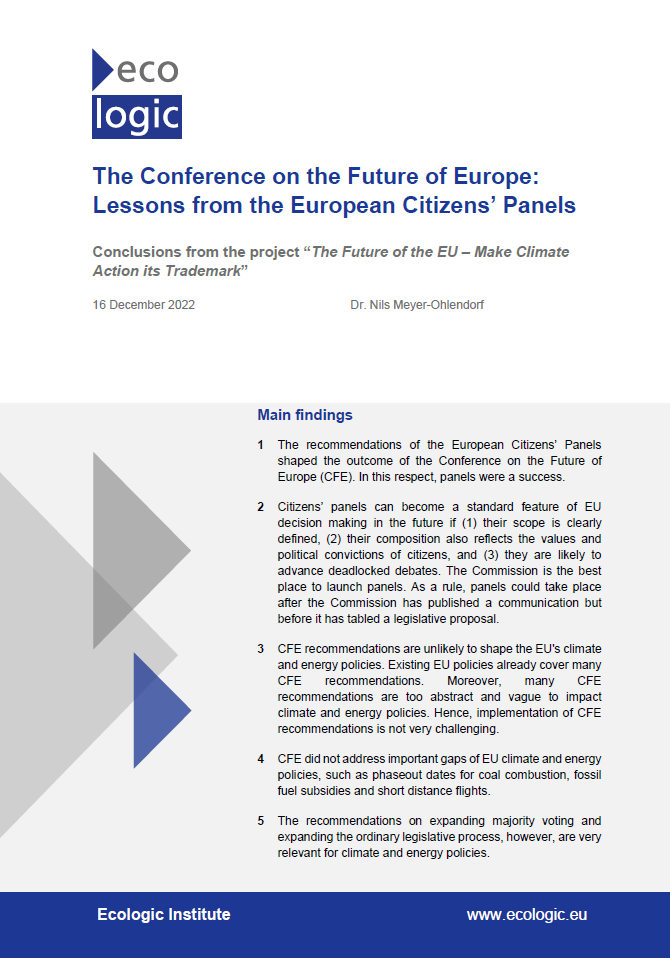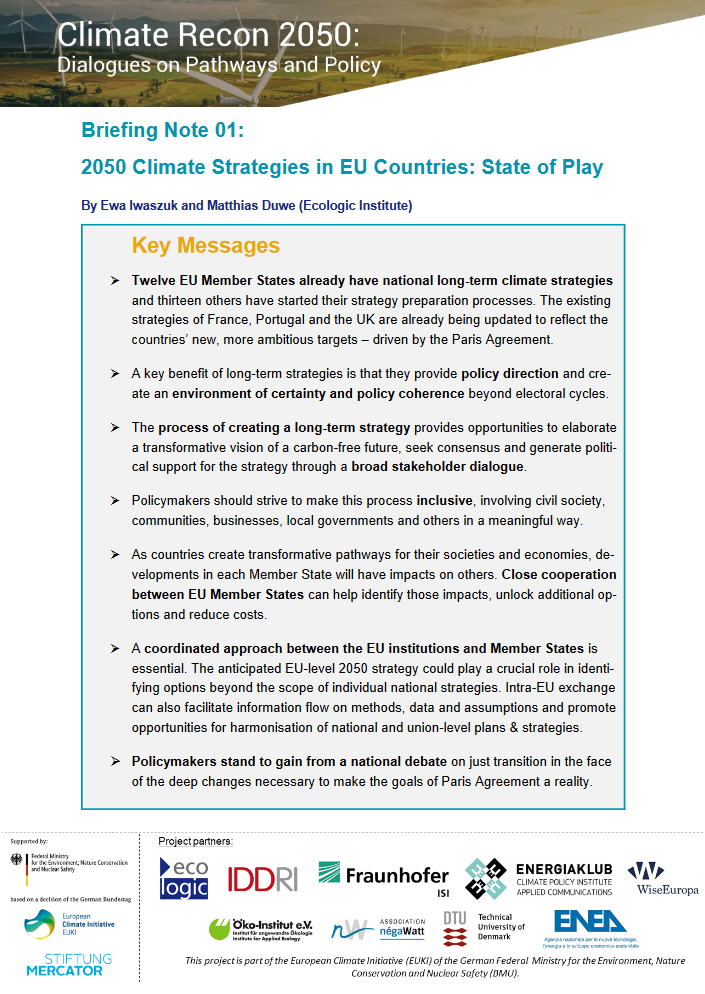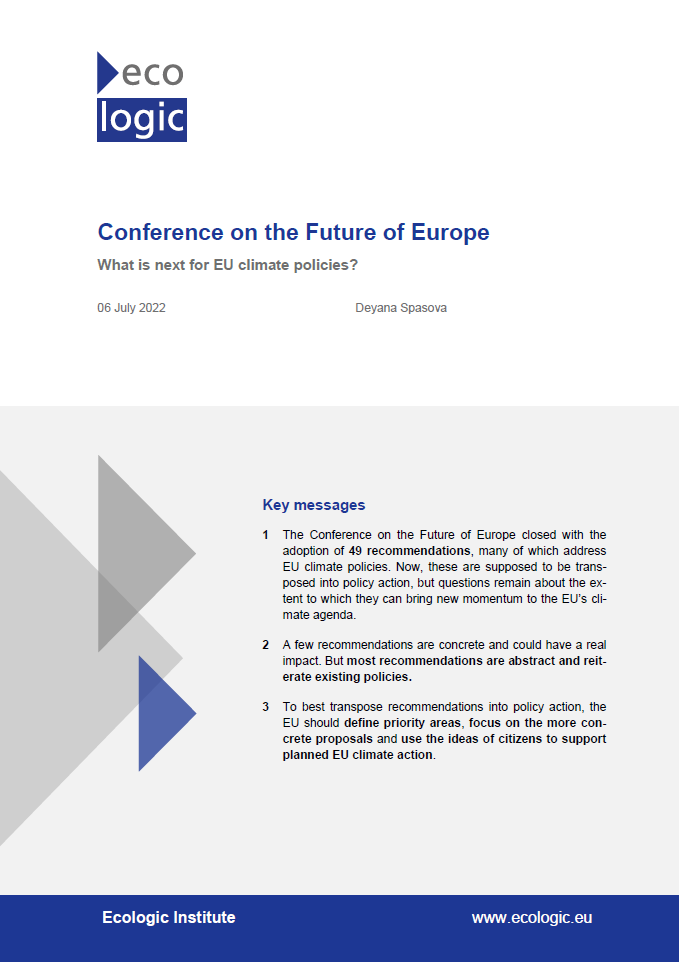Long-term Strategies: state of play, challenges and possible support through the G20
- Publication
- Citation
Haase, Isabel; Duwe, Matthias (2022): Long-term strategies in a G20 context. Ecologic Institute, Berlin.
The G20 summit 2022 under Indonesia's presidency is a central moment for geopolitics, as representatives of the most powerful economies convene to discuss important worldwide developments. One central topic is the advancement of climate action. As the G20 countries are responsible for more than 80% of global GHG emissions (destatis, 2022), their actions can make or break a path towards climate neutrality at global level. Against this background, the national long-term strategies (LTS) of the G20, which outline the course for the necessary transition towards that goal, could be instrumental in serving as a compass to guide policy. These strategies are also a topic at COP27 in Sharm-el-Sheik.
Based on experience worldwide to date, this paper provides an overview of the process of developing an LTS and its challenges, examines the support available for countries undergoing this process and presents some ideas on how the G20 could raise the political profile of the strategies. It has been included as input into the T20 process preceding the 2020 summit.
Out of the 20 member countries of the G20, 16 have developed and published a national LTS (as of November 2022). The fact that the vast majority of G20 member countries already have a strategy in place is a good starting point for considering how the group could advance their use further. The G20 has the political weight, the institutional capacity and opportunity to support the development and implementation of the LTS. This can be accomplished in a number of ways, including by increasing the strategies' visibility, providing direct financial or technical support for the development and implementation of the strategies, and facilitating dialogue and cooperation.
This relationship goes both ways: If LTS are able to provide a coherent long-term roadmap for achieving net-zero emissions, they are consistent with the G20’s ambition to advance an effective, efficient and just transition to climate-friendly economies. This is urgently needed, as climate change, if left unaddressed, will cause major economic losses for both developed and developing countries. Well-designed LTSs could support policy planning within and across countries and foster cooperation on specific topics as pathways and investment needs are identified for each sector.




